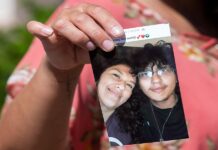
Charles Clarke spent over 5 years to save up $11,000 only to have it seized by law enforcement officials before he was scheduled to board a flight at the Cincinnati/Northern Kentucky Airport on February 17, 2014. Because his checked luggage had a strong odour of marijuana (but found no drugs), he was travelling on a recently purchased one-way ticket, and he was unable to provide documentation for source of currency, Drug Enforcement Administration task force officers seized his cash through civil forfeiture, an “important crime-fighting tool”, which allows law enforcement to seize cash and property without ever charging anyone with any crime “thereby improving national security and increasing the quality of life for the American public”.
Officers claim that when his assets were seized, Clarke grabbed the officer who was holding his money. He was charged with assault on a police officer, resisting arrest, and disorderly conduct – the charges were, however, dropped. Two months after the seizure, he got his phone and iPad, but is fighting to get his cash back.
Since the government could not prove that Clarke had committed a crime, and victims of civil forfeiture aren’t entitled to any legal aid from the government, he was forced to hire a lawyer to prove his innocence. The case is titled: United States of America v. $11,000 in United States Currency and Charles L. Clarke, II. The Institute for Justice, a national non-profit that runs EndForfeiture.com, is now representing Clarke.
“I saved up the money to use for living expenses and for future savings, and now it is gone. After the money was seized, it was very hard for me to make ends meet. I had to borrow money from family, and I was embarrassed. No one should have to go through the nightmare I went through simply because they choose to carry their hard-earned cash,” Clarke said.
“I was scared. I didn’t feel like I knew what was going on. I was being treated like a criminal, I didn’t commit any crime, and I didn’t understand why I was stopped, so I was confused and scared,” he told VOX adding, “I’m not a drug dealer. I never have been. I was just a recreational user. I don’t smoke often, but I was using at the time.”
Will he get his savings back?
Since the local (Cincinnati/Northern Kentucky Airport Police) and federal agents (Covington Police Department) cooperated on a seizure, federal agencies were ‘entitled’ to keep at least 20% of Clarke’s cash, while local cops were entitled to split the remainder among themselves. This is not all.
According to a review of the Justice Department’s Consolidated Asset Tracking System, 11 additional law enforcement agencies including the Kentucky State Police, the Ohio Highway Patrol, and even the Bureau of Criminal Investigations within the Ohio Attorney General’s office – who were not even involved in Clarke’s case – have also requested a share of his cash under the federal asset forfeiture program. The Airport police want 40%, the Cincinnati Police Department 6.14%, and the rest of the agencies 3.07% each, making it just under 80%, which by law is the maximum amount local agencies are allowed to receive in cases like this. The robbery is being legally carried out in the name of civil asset forfeiture to compensate law enforcement agencies for their crime-fighting efforts.
But why are 11 agencies that were not involved with the forfeiture of Clarke’s cash asking a cut of it? Because they all participated in the same DEA drug task force that’s home to the officer who made the seizure, according to Darpana Sheth, Clarke’s attorney. “Law enforcement agencies are just scrambling to get a cut of the money and it has nothing to do with legitimate law enforcement incentives. It’s more about policing for profit. It’s really just the money, it’s not anything else that’s driving the request,” she said.
Normally, the government has to prove beyond a reasonable doubt that someone is guilty of a crime. But to keep Clarke’s savings, the government only has to show that the money was linked to illicit activity — it either came from selling illicit drugs, or it was intended to buy illicit drugs – since it is a civil forfeiture case.
Policing For Profit
According to the Federal Aviation Administration, even though passenger departures dropped from roughly 11 million to fewer than 3 million, the total amount of cash seized at the airport increased from $147,000 to more than $2 million in 2013– and the Cincinnati/Northern Kentucky Airport Police took part in almost 100 seizures.
This Article (Legal Robbery: Cops Seize Innocent College Student’s $11,000 At Airport) is free and open source. You have permission to republish this article under a Creative Commons license with attribution to the author and AnonHQ.com.





These are the kind of cops American citizens have to deal with today they rob you they shoot and kill you and steal the government does nothing about them.
Isn’t it illegal to carry over 10K in cash anyway? The civil forfeiture law is BS, but carrying that much cash is dumb too. I hope he gets it back, but it could have been avoided all together. Hate to say it, but I bet he was selling marijuana. Rec users wouldn’t have “strong odor of marijuana” on their luggage without there being anything in it. I would know.